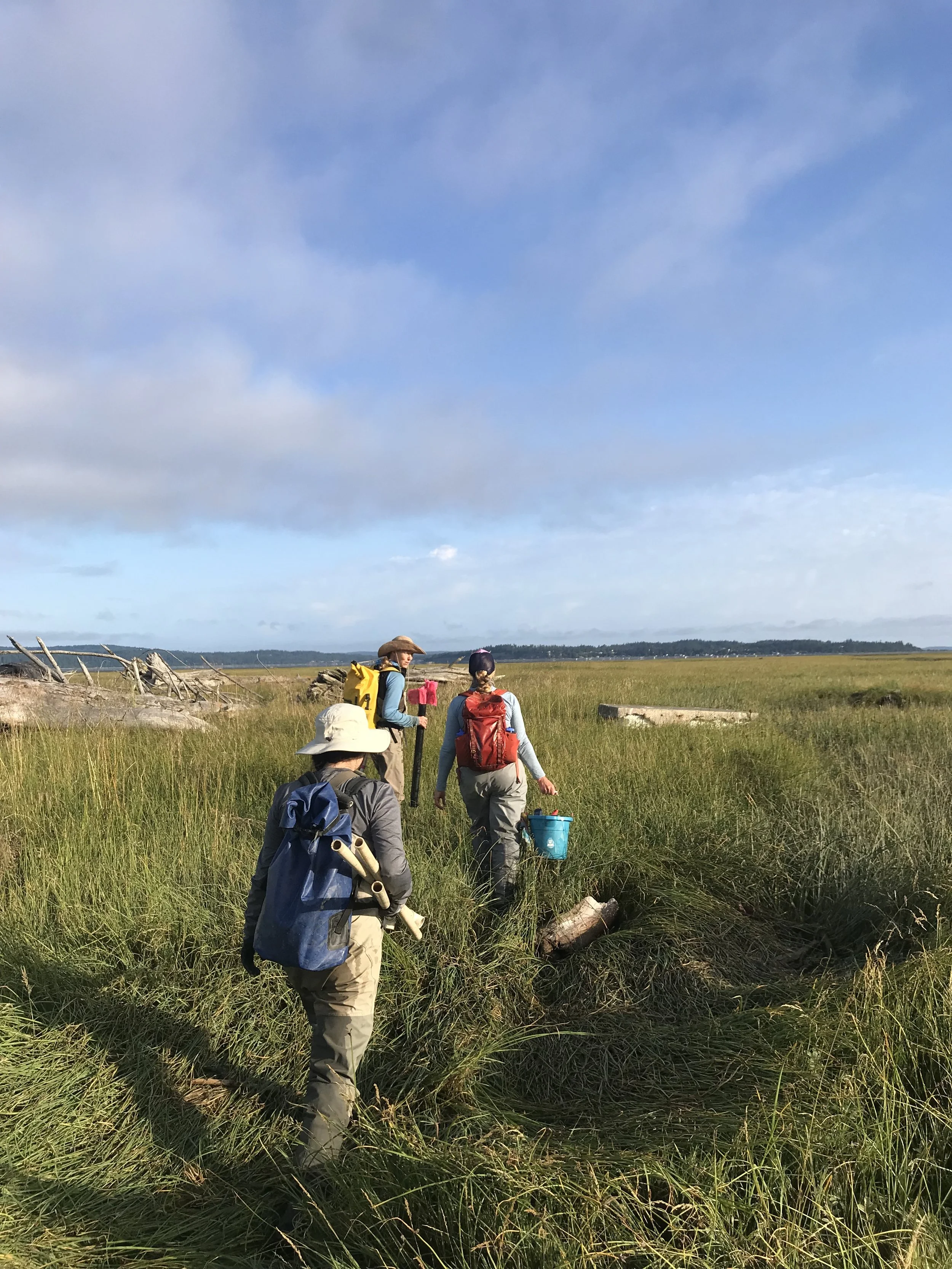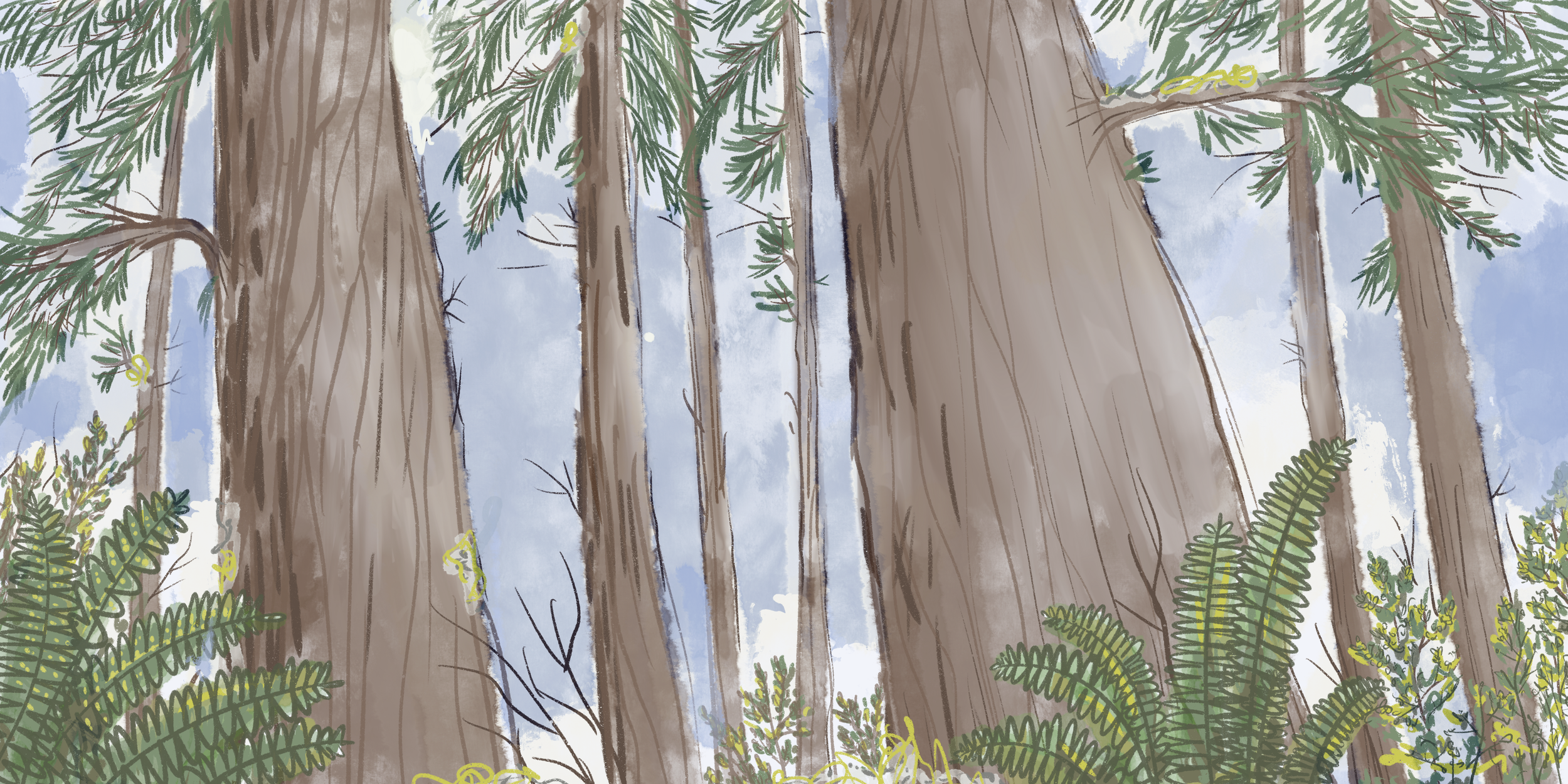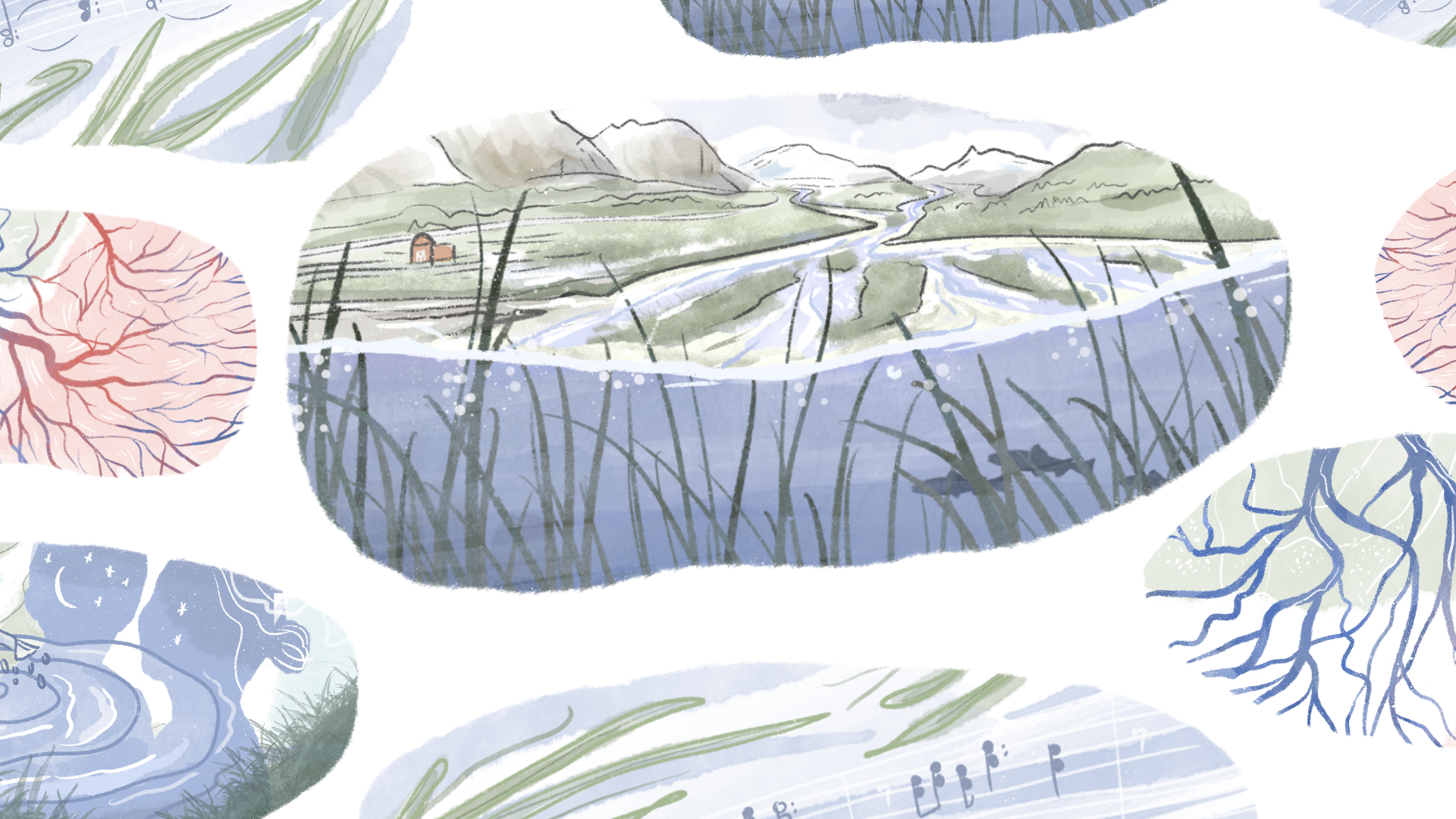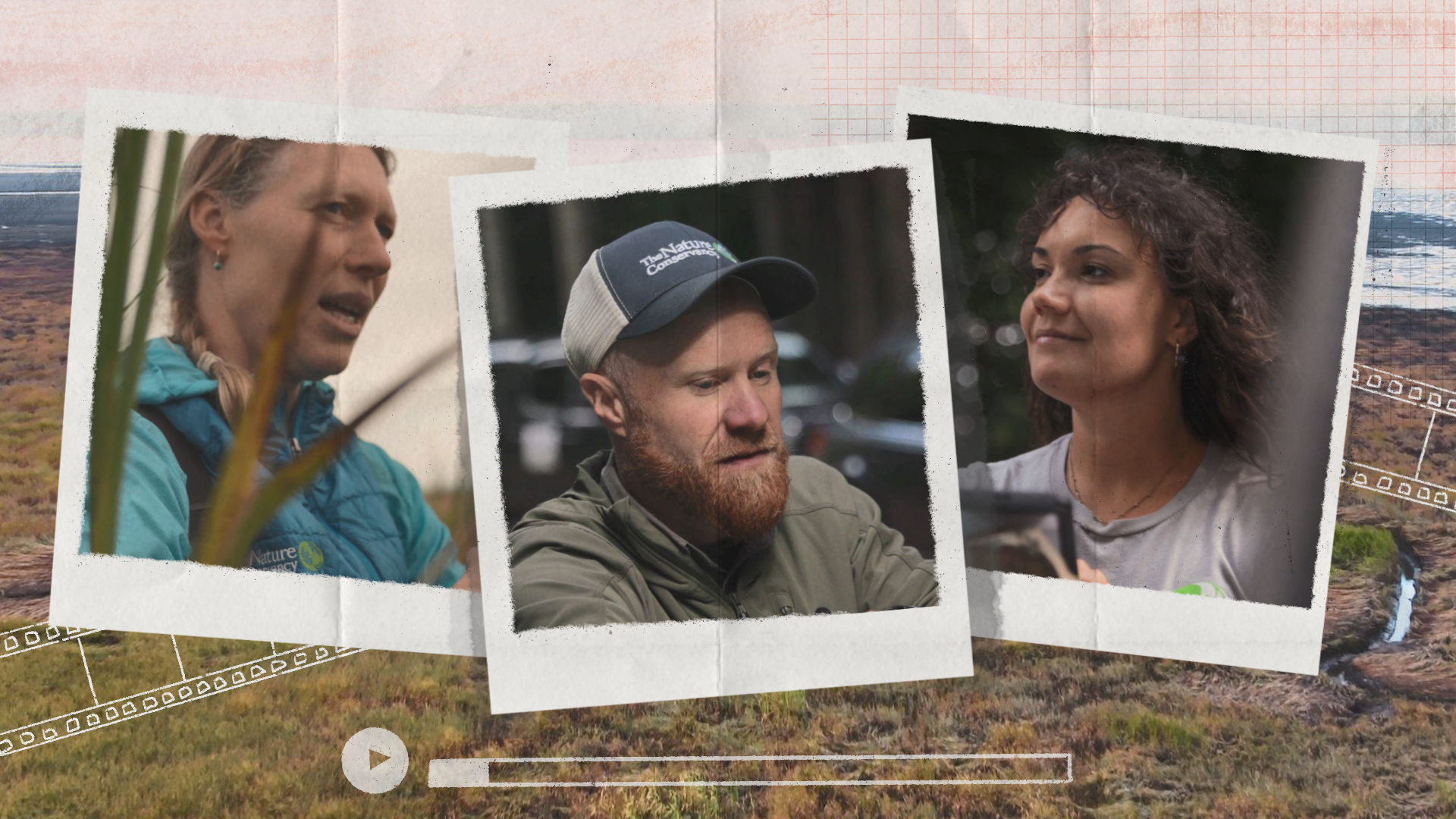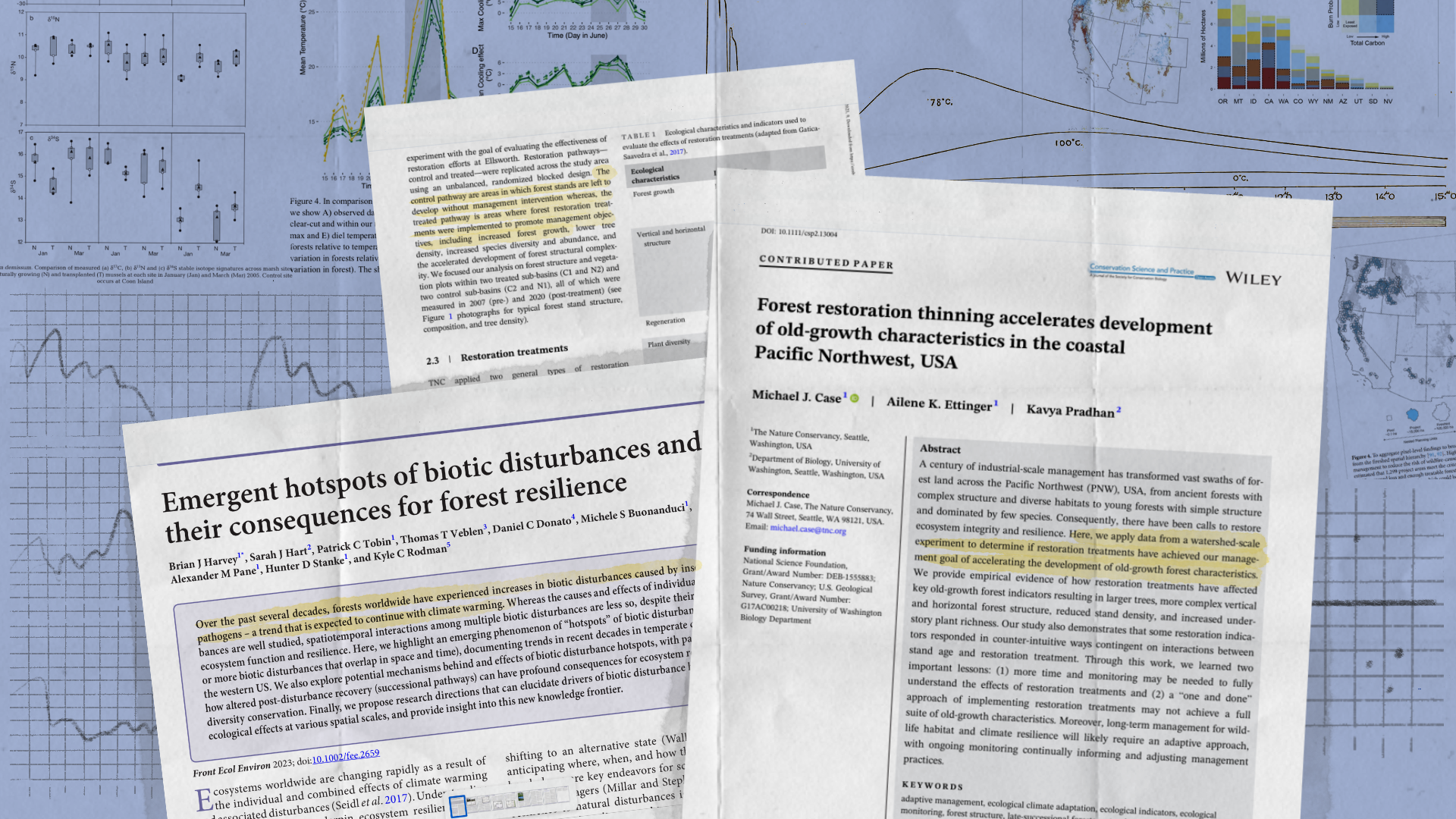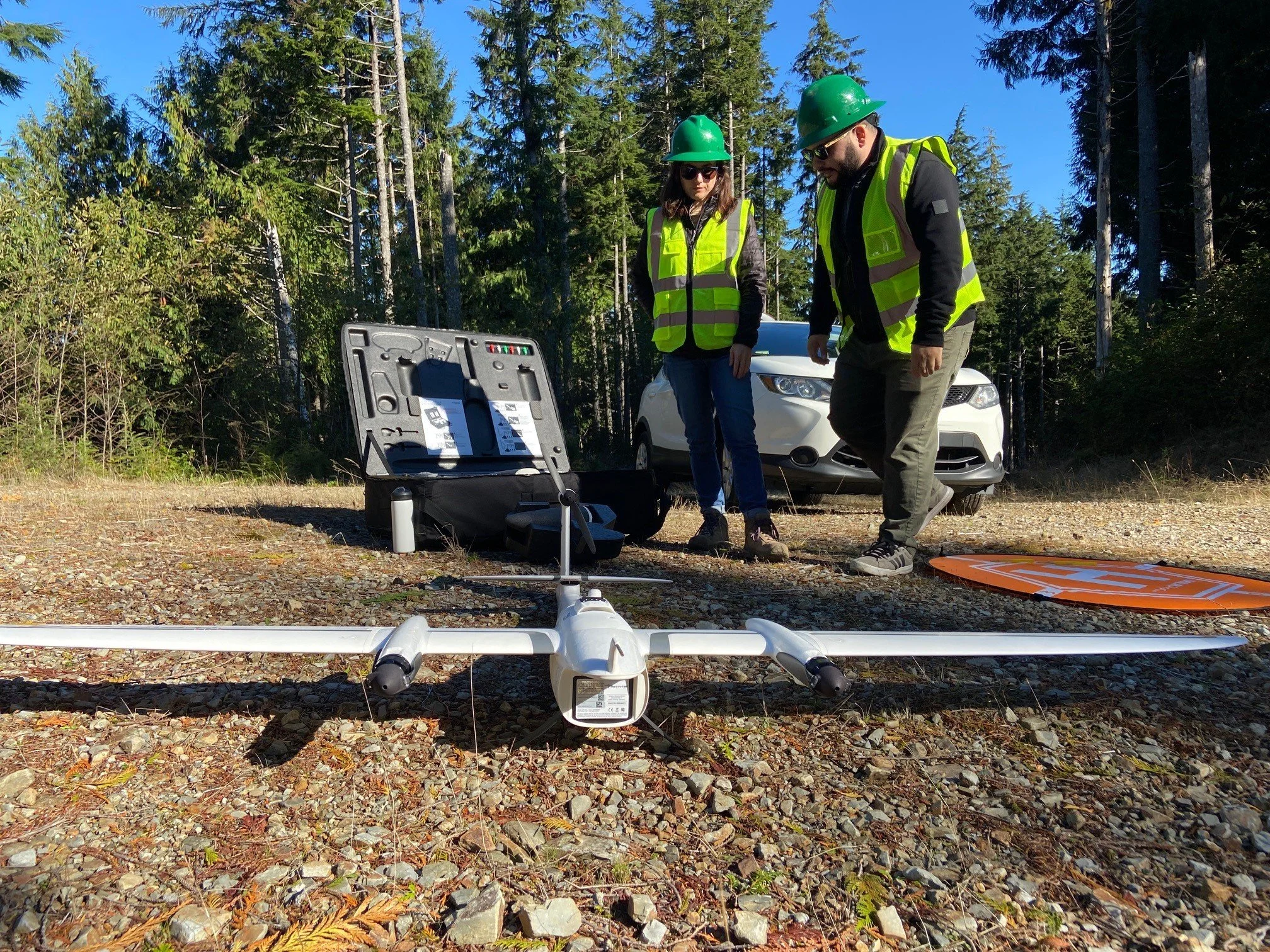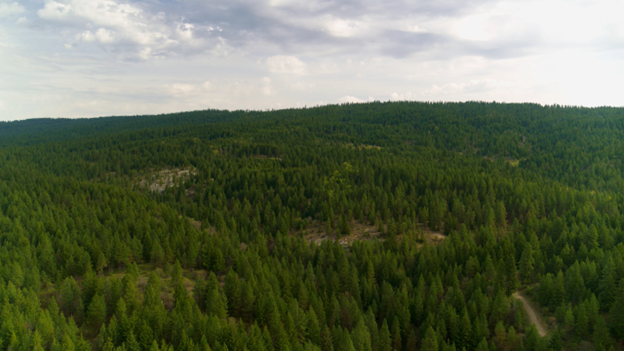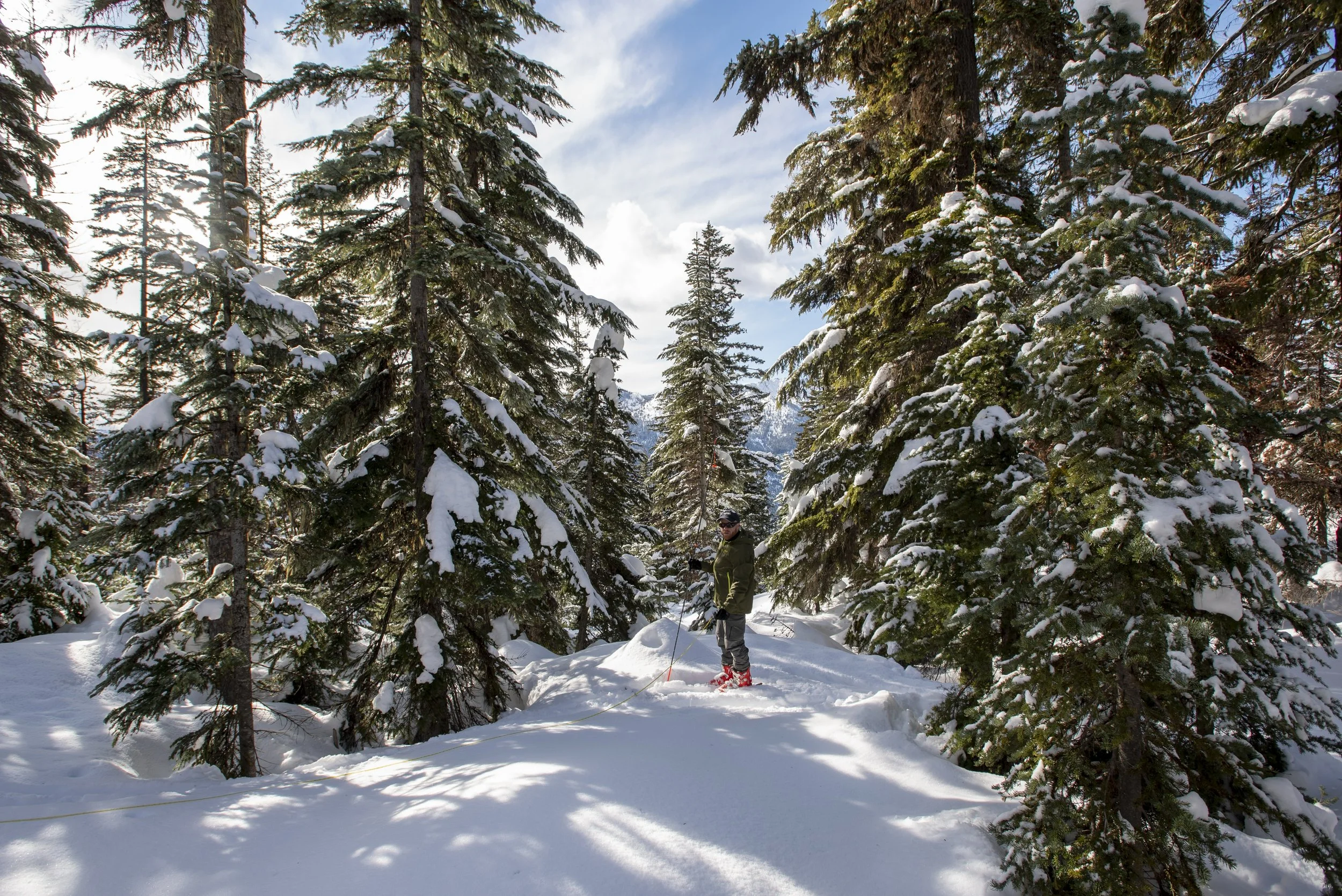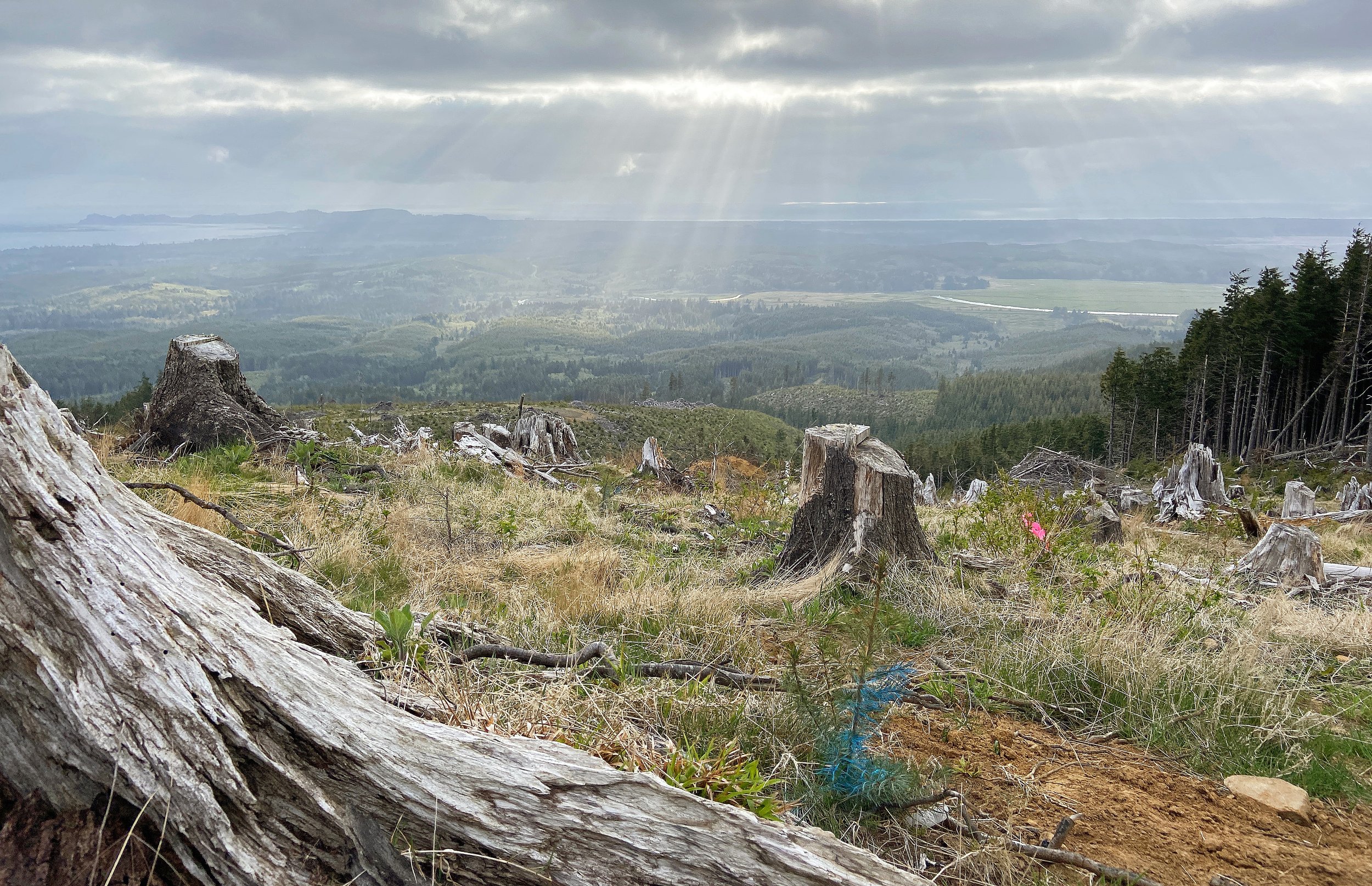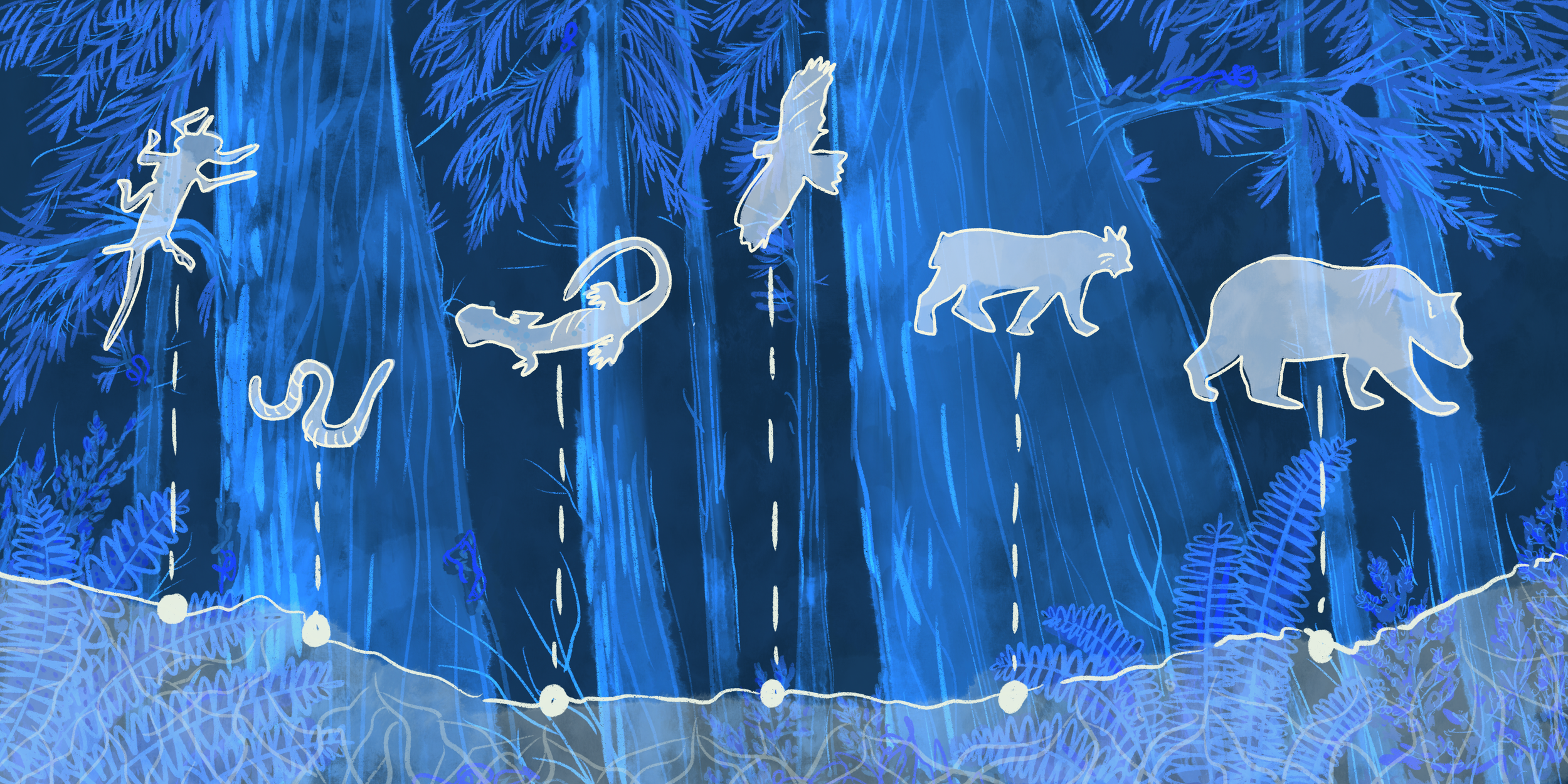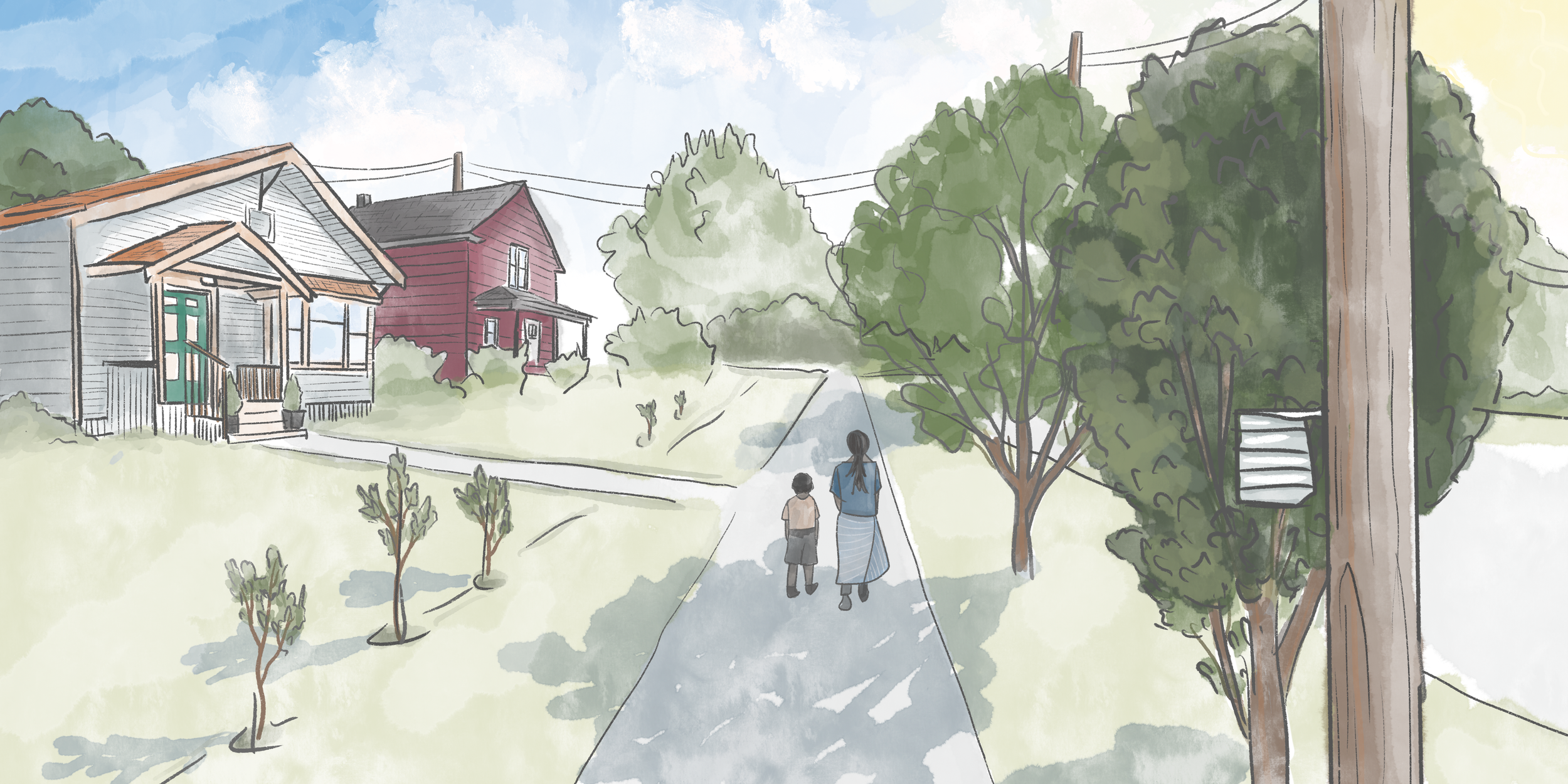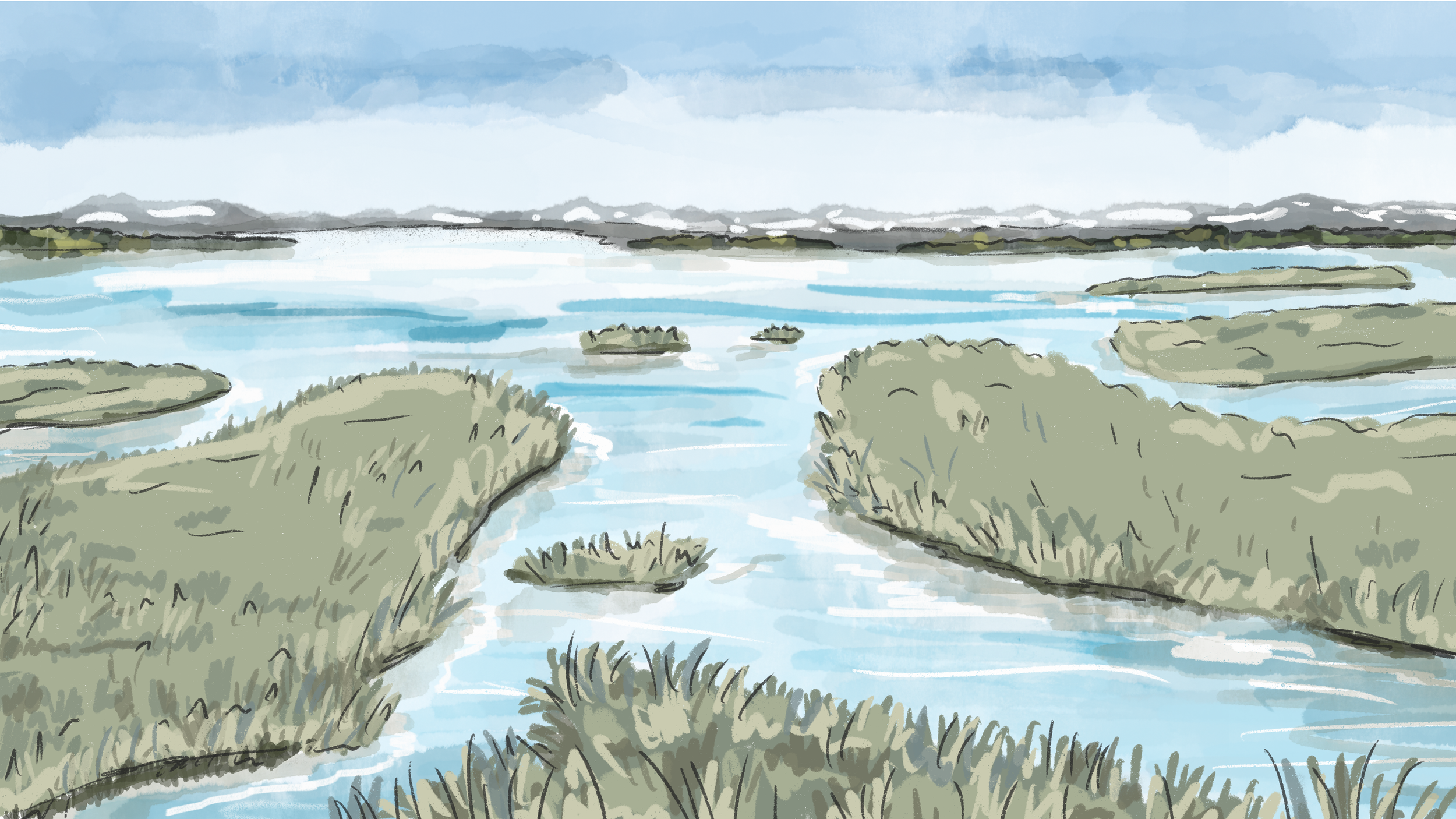by Elaine Genest
This summer, two University of Washington students joined The Nature Conservancy’s (TNC’s) Science Team as conservation science interns. Alex Crabtree and Katie Thomas spent nine weeks with TNC WA through UW’s EarthLab Summer Internship Program. The program provides a cohort-style experience that supports students’ professional development in interdisciplinary and community-engaged work that centers around climate change and social justice.
Read on to find out more about their experiences as TNC’s summer interns.
Katie Thomas at Port Susan Bay Preserve. Photo: Molly Bogeberg \ The Nature Conservancy.
Q: What’s something you got to experience as a TNC intern that you’d never done before?
A: Katie Thomas
As an intern I got to experience field work for the first time…and found out it’s a lot of hard work! During the internship, our supervisors taught us the process for conducting field research. One of the most important parts of successful field work is setting up your question and determining how to monitor a project and gather data as well as how to set up goals and research questions. I appreciated working alongside TNC’s staff to learn the process and ask questions about their approach. It was also helpful to have company during the more rigorous parts of working in the field which made the experience even more enjoyable.
A: Alex Crabtree
Alex Crabtree at Port Susan Bay Preserve. Photo: Katie Thomas.
While I found out firsthand about the physical work involved to conserve a natural area, I was also struck by the powerful role that storytelling plays in conservation. During a field work day at the Ellsworth Creek Preserve, a 7600-acre watershed in southwest Washington, Michael Case, a forest ecologist at TNC, told us about how TNC was able to purchase the land after an activist wrapped a rope around a large old growth tree in the forest to demonstrate its impressive size. The previous landowners were so impressed with the width of the trunk that they agreed to sell the land to TNC for conservation. Being able to show the value of conserving an area of rich natural resources was key to ensuring it could be preserved and restored. Without the storytelling piece, Ellsworth Creek Preserve might never have been protected.
Q: Can you share a memorable story from the field this summer?
A: Katie Thomas
Alex Crabtree, Amber Parmenter, and Emily Howe conducting vegetation monitoring at Port Susan Bay Preserve. Photo: Katie Thomas.
While field work can be physically demanding, I loved sharing experiences in nature with others and learning about the wildlife around us. I remember one occasion when we were driving to a site at Ellsworth Creek Preserve and an elk with large antlers ran into the road right ahead of us. At that moment, I thought about how awesome it was to be outside doing field work surrounded by beautiful creatures. I also loved connecting with others through common interests during our excursions. On a trip to Port Susan Bay Preserve, one of my teammates shared her deep knowledge of birds which got the rest of the crew excited and curious about them, too. Those experiences connecting with others while immersed in natural beauty were the most memorable for me.
A: Alex Crabtree
Field work is known for being challenging but it could also be a lot of fun. One day our crew was tasked with helping clean oyster shells so they could be repurposed for Olympia oyster restoration efforts. I remember watching an excavator operator pull down shells from a huge mound. Once the operator had crushed the shells, they would beep the excavator twice and we would go out as a group and dig through the fragments to remove plastic or bits of debris. When we were done, the operator pulled down more shells from the mound, beeped twice and the group would all run out again like a herd of animals. We had the best time!
Q: What was something challenging you experienced that contributed to your personal or professional growth?
A: Katie Thomas
I’d never conducted a literature review before my internship with TNC. Literature reviews are important knowledge-building tools that help the team build an informed understanding of a given topic. I had to learn how to read complex research papers and extract the right information (which was no easy feat!). The process involved a lot of time on the computer reading scientific material, which required deep focus and careful attention to detail. Sometimes information conflicted or the literature didn’t lead to the expected conclusion so it could be tricky to synthesize the material. As I became more experienced, I found my stride and the process became a lot smoother.
A: Alex Crabtree
Similar to Katie, literature reviews also presented challenges for me. I was working on an emerging topic, indigenous aquaculture, and my supervisors and I weren’t exactly sure what the focus should be or how to narrow down the scope. Since I’m also interested in the topic as a whole, I started off really broad and honed in from there. It turned out there was a lot to learn about the topic and I actually had to narrow the scope of my research more than once since my time at TNC is limited and I wanted to make a meaningful contribution with my findings.
Q: What was the best part of collaborating with the Science Team this summer?
A: Katie Thomas
Katie Thomas and Alex Crabtree standing on an old-growth tree at Ellsworth Creek Preserve. Photo: Michael Case \ The Nature Conservancy.
Everyone on TNC’s Science Team is really kind and generous—I learned a lot from their experience and expertise. The team really took us under their wings and encouraged us to ask questions and even offered advice for our careers and schoolwork. They also helped us connect more deeply to the work by encouraging us to pay attention to our environment every time we were out in the field. I remember sitting in an old growth forest area at the Ellsworth Creek Preserve with Michael Case, one of TNC’s forest ecologists, who encouraged us to soak in the feeling of being surrounded by giant trees and birdsong. It was so inspiring to work alongside people who love the work they do.
Katie Thomas (left), Michael Case (middle), and Alex Crabtree (right) at Ellsworth Creek Preserve. Photo: Michael Case \ The Nature Conservancy.
A: Alex Crabtree
The TNC science team really served as mentors to both of us. They’re all extremely passionate about their work and have interesting paths in life with a range of experiences and interests. We spent hours getting to know them and listening to their stories which helped me feel even more connected to TNC’s mission. Being in nature so often and spending time with others who are passionate about it made our work feel more valuable and fun. My internship was kind of a life-changing experience for me and it sparked deeper inspiration to protect our precious natural resources.

